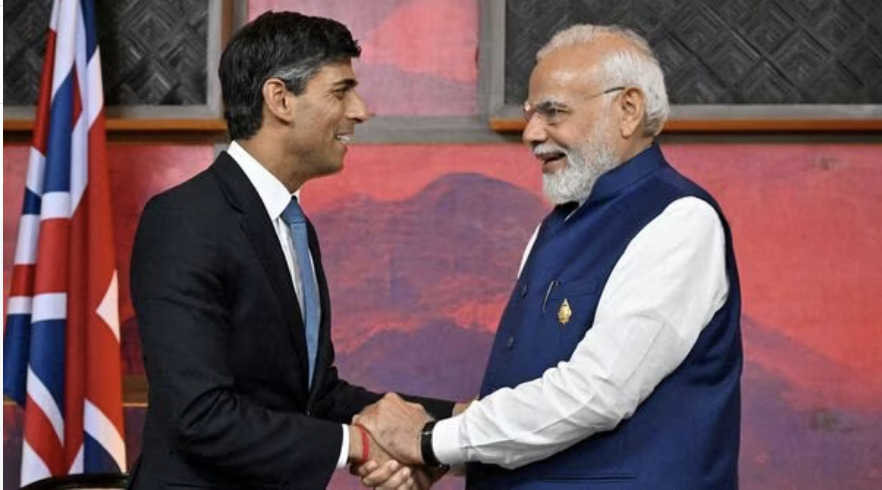The close negotiations between India and the UK for a proposed free trade agreement (FTA) have entered the final stage, with the 12th round of talks scheduled for August. The impending FTA holds the promise of significantly boosting economic ties between the two nations, creating new avenues for trade and investment. As both sides aim to conclude the negotiations before the end of the year, let’s delve deeper into the key areas of discussion and the potential impact of this agreement on bilateral trade.
Table of Contents
The Road to a Free Trade Agreement
The journey towards a comprehensive FTA between India and the UK has been characterized by rigorous negotiations and multiple rounds of talks. So far, 19 out of 26 chapters have been successfully closed, indicating substantial progress. The bilateral investment treaty, which is being negotiated separately, is expected to be concluded simultaneously with the FTA. Both parties are keen on establishing the ‘rules of origin’ provision, which aims to prevent the dumping of goods and promote fair trade practices.

Key Areas of Discussion
The 12th round of talks will focus on critical aspects that can shape the future of India-UK economic relations. One of the primary concerns on the table is the reduction of duties on automobiles and whiskey, as well as matters pertaining to services. Additionally, product-specific rules of origin are being negotiated to include value-addition norms for each product category. This ensures that goods traded under the FTA are genuinely originating from India or the UK, discouraging the re-export of goods from other countries under the agreement.
India’s Demands
The Indian industry is eyeing increased access for skilled professionals from sectors like IT and healthcare in the UK market. India’s services sector, particularly IT services, has been significantly contributing to the UK economy, making it a crucial area of focus for Indian negotiators. Furthermore, India seeks market access for several goods with nil customs duties in the UK, aiming to expand its presence in the British market and enhance export opportunities for its industries.
The UK’s Demands
The UK, on the other hand, is advocating for significant cuts in import duties on goods such as scotch whiskey, automobiles, lamb meat, and certain confectionery items. These demands reflect the UK’s desire to bolster its exports to India and strengthen its position as a key trading partner. Additionally, the UK is looking to capitalize on opportunities in the Indian services market, particularly in telecommunications, legal, and financial services, including banking.
Strengthening Bilateral Trade
The trade relationship between India and the UK has been steadily growing, with bilateral trade reaching USD 20.36 billion in 2022-23, up from USD 17.5 billion in the previous year. India’s main exports to the UK include ready-made garments, textiles, gems, engineering goods, and petroleum products. On the other hand, the UK’s primary imports from India consist of precious and semi-precious stones, ores, metal scraps, engineering goods, and chemicals.
Boosting Investments
Investments between India and the UK have also been on an upward trajectory, with the UK being one of the top investors in India. In 2022-23, India received USD 1.74 billion in foreign direct investment from the UK, demonstrating strong investor confidence in the Indian market. With the FTA expected to unlock further investment opportunities, both countries can explore new avenues for mutual economic growth.
Conclusion
The India-UK Free Trade Agreement represents a significant milestone in their bilateral trade relations. As negotiations enter the final stages, both nations have a unique opportunity to leverage each other’s strengths and capitalize on the potential for economic growth. By addressing critical areas of discussion and fulfilling the demands of both sides, the FTA can pave the way for deeper economic cooperation and propel India and the UK towards becoming stronger players in the global market.
In a world where global trade is becoming increasingly important, this FTA stands as a testament to the commitment of India and the UK towards promoting free and fair trade, further solidifying their position as key players in the international economic landscape.













